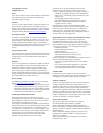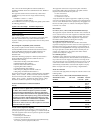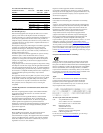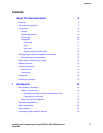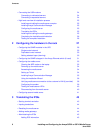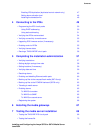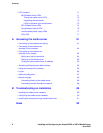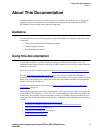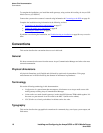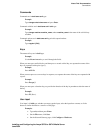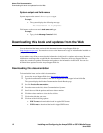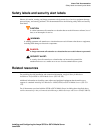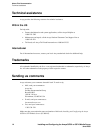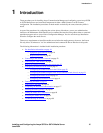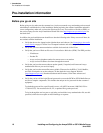
About This Documentation
Audience
Installing and Configuring the Avaya S8700 or S8710 Media Server 9
June 2004
About This Documentation
This documentation, Installing and Configuring the Avaya S8700 or S8710 Media Server (03-300145),
provides procedures for installing Avaya Communication Manager on and configuring an S8700 or
S8710 Media Server and other control network components.
Audience
This documentation is for the following people tasked with installing and configuring the media server
components:
• Trained field installation and maintenance personnel
• Technical support personnel
• Authorized Business Partners
Using this documentation
Use this documentation as a guide to install and configure the S8700 or S8710 Media Server. For
information about a particular task, use the index or table of contents to locate the page number where the
information is described.
For an overview of the installation process, see High level overview of installation process on page 25
.
Read the Pre-installation information on page 16
first. This section lists all the tasks that must be
completed before beginning the procedures described in this document. One step you normally complete
before going to the customer site is getting the license and Avaya authentication files from the Remote
Feature Activation (RFA) Web site.
For technical specifications on the hardware, see Table 2, Avaya S8710 Media Server features and
specifications, on page 19.
For the physical installation and cabling of the hardware, see the Quick Start for Hardware Installation:
Avaya S8700 or S8710 Media Server (555-245-703). Use the remaining sections of the document in the
sequence they are presented. If certain components are not to be installed, skip the procedures for those
components. You install and configure the media server components using information in the following
sections:
• Configuring the SNMP modules in the UPS on page 28
• Configuring the SNMP subagent in the Avaya Ethernet switch (if used) on page 31
• Configuring the media server on page 33
• Configuring second media server on page 41
• Translating the IPSIs on page 43




